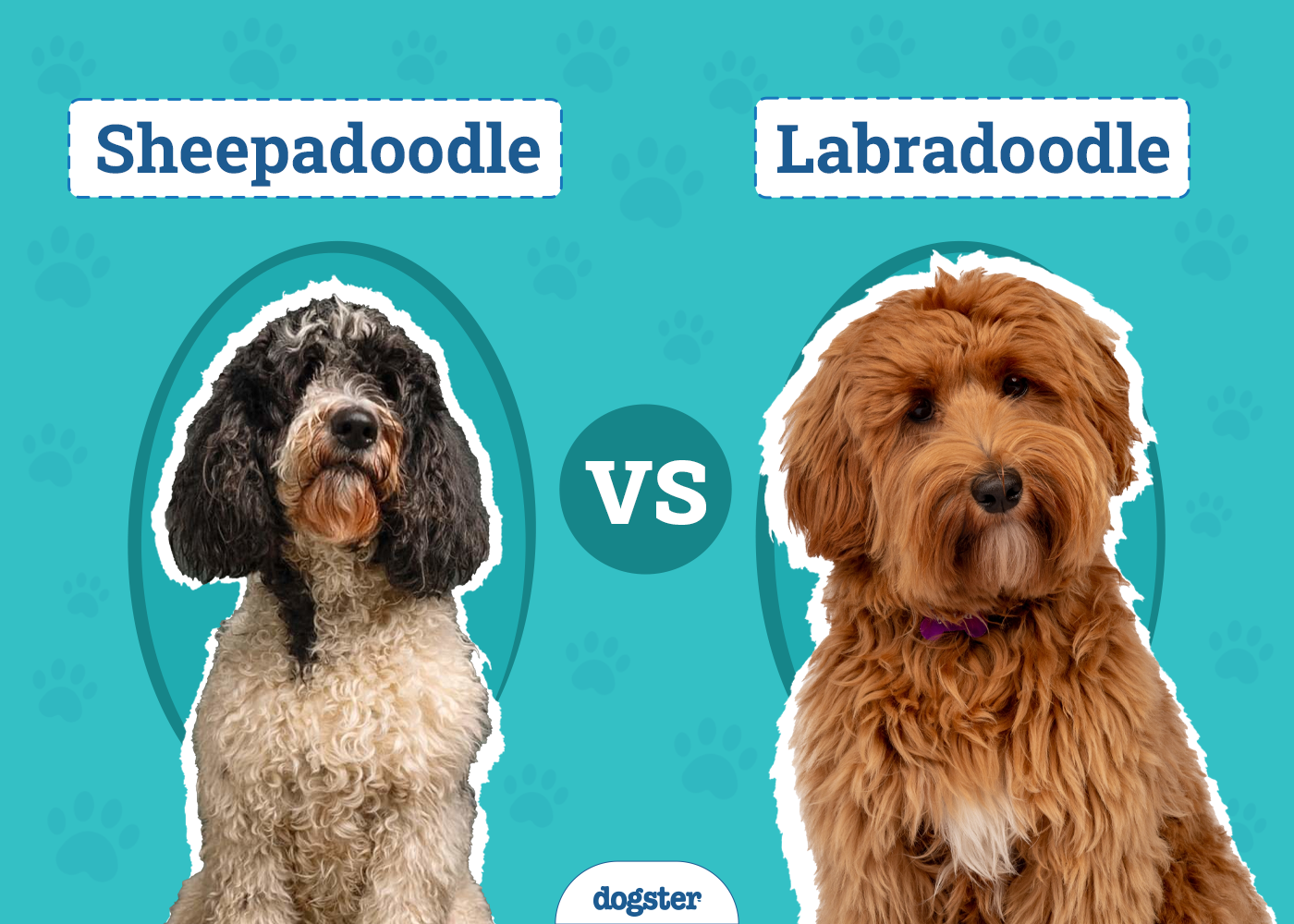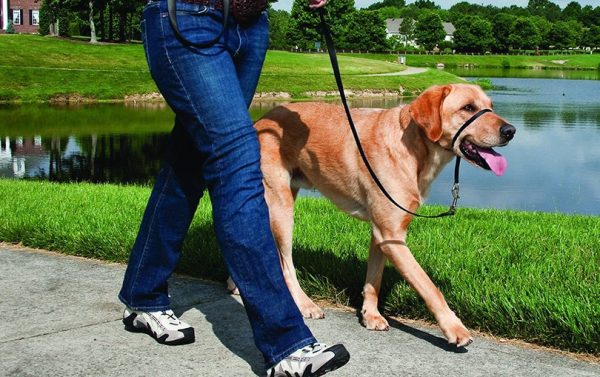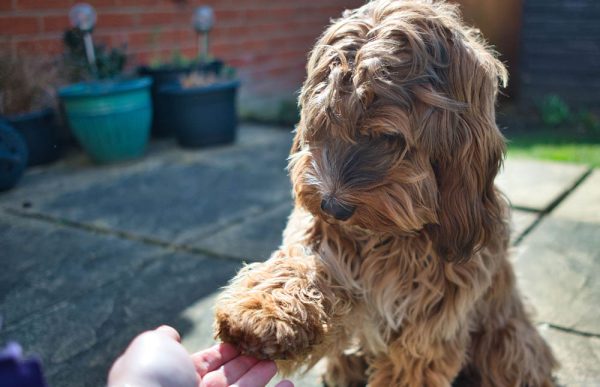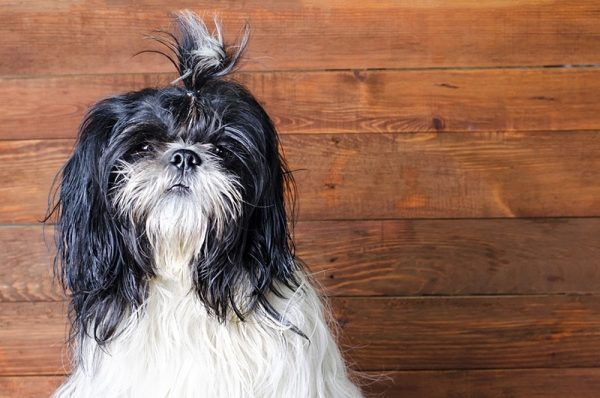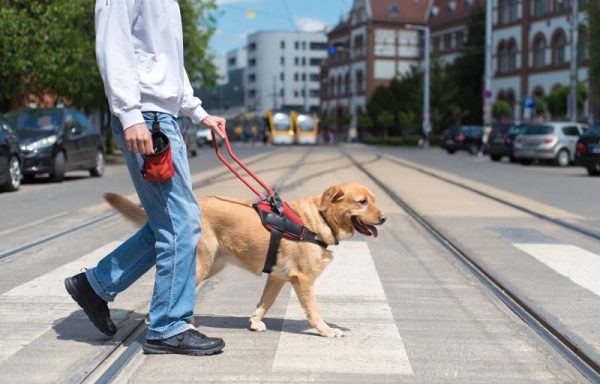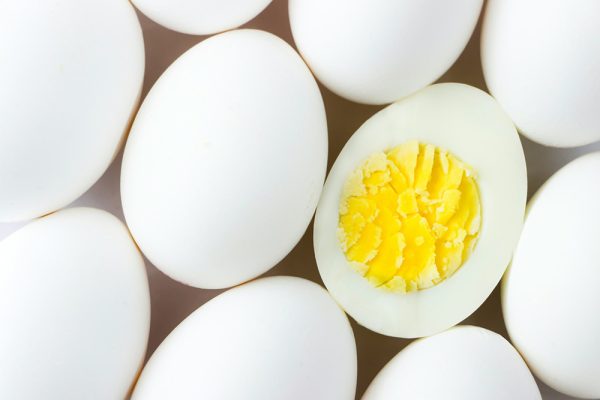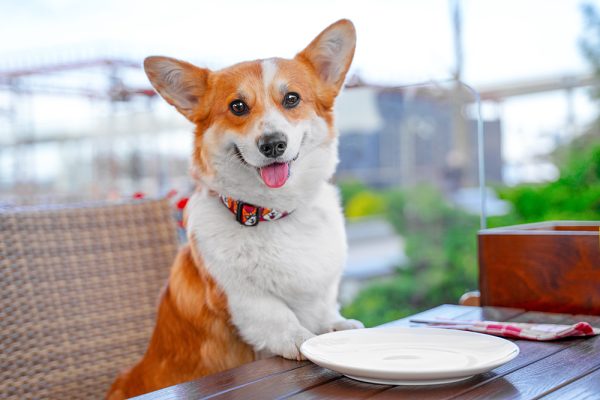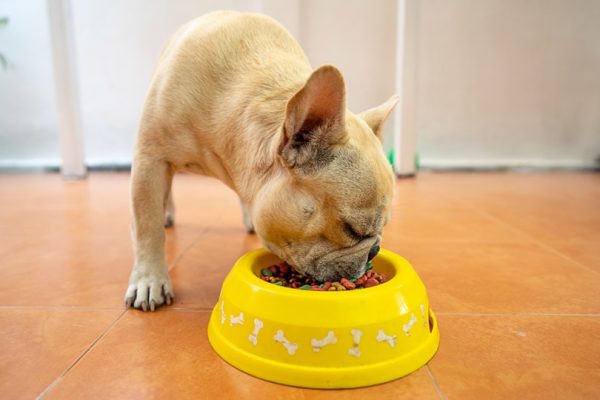In this article
View 3 More +Deciding what breed of dog to adopt is never simple, but it’s much more complicated when you come across two breeds that seem quite similar. How on earth do you decide which to choose? The easiest way to determine which would fit your lifestyle best is to find an article just like this one.
If you’ve been waffling between the Sheepadoodle and Labradoodle (both hybrid breeds with a Poodle as one of the parents), then you’ve already noticed how similar they are. But what about their differences? Here you’ll find the differences between Sheepadoodles and Labradoodles explained so you can choose the right dog for your lifestyle!

Visual Differences
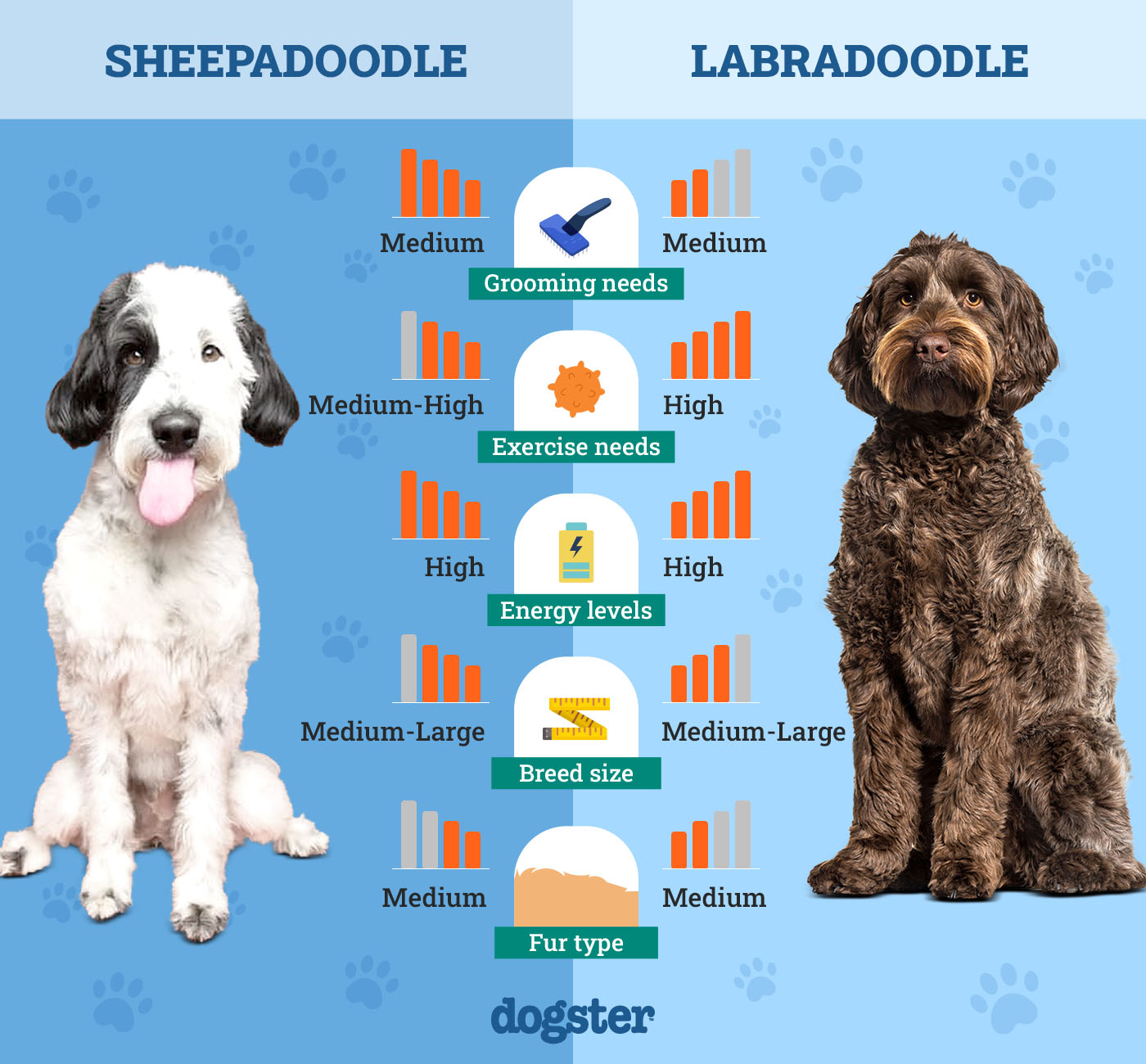
At a Glance
- Average height (adult): 18–27 inches
- Average weight (adult): 65–85 pounds
- Lifespan: 12–15 years
- Exercise: 2+ hours a day
- Grooming needs: Moderate
- Family-friendly: Yes
- Other pet-friendly: Yes
- Trainability: Intelligent, gentle, affectionate
- Average height (adult): 22–25 inches
- Average weight (adult): 50–75 pounds
- Lifespan: 10–14 years
- Exercise: 2+ hours a day
- Grooming needs: Moderate
- Family-friendly: Yes
- Other pet-friendly: Yes
- Trainability: Easygoing, intelligent, friendly

Sheepadoodle Overview
Sheepadoodles are an adorably fuzzy hybrid breed that comes from the Poodle and the Old English Sheepdog. Though a relatively newer designer breed, the Sheepadoodle has grown in popularity due to its teddy bear-like looks and affectionate, friendly personality (the fact that they’re low shedders helps as well!).
You might also hear these pups referred to as Sheep-a-Poos or Sheeppoos. How big or small a Sheepdoodle gets depends on the size of the Poodle the Old English Sheepdog parent was bred with.
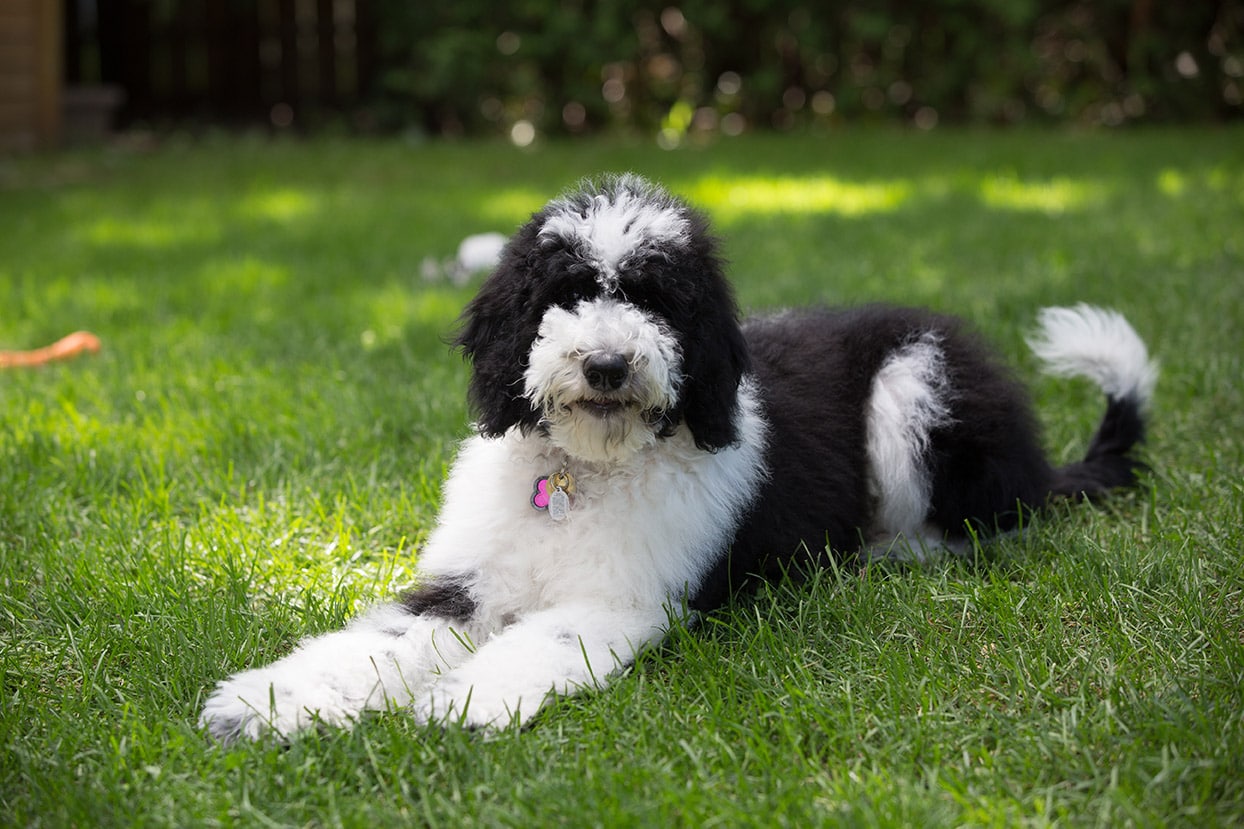
Temperament
Sheepadoodles are known for having excellent temperaments! These pups inherit the laid-back personality of the Old English Sheepdog and are extremely gentle and sweet. This makes them a wonderful addition to families with children. Not only do they get along well with kids, but they are also incredibly friendly with other dogs and pets.
The breed is also quite intelligent, a trait inherited from the Poodle parent, making training the Sheepadoodle easier.
Training
The Sheepadoodle isn’t only highly intelligent, but it also inherits the working instincts of its Old English Sheepdog parent. Both make training these dogs relatively easy, though you must match how you train a Sheepdoodle according to which parent it inherited more traits from.
Poodles are eager to please, so they tend to pick up commands and tricks faster. But the Old English Sheepdog can sometimes be a bit independent, which could complicate things just a tad. Either way, though, you shouldn’t have many problems.
If you are having issues training your Sheepadoodle, reach out to a professional trainer near you to get some help!

Health & Care
Though Sheepadoodles are a relatively healthy breed, there will be some health issues they might inherit from their parents.1
- Bloat
- Hypothyroidism
- Canine hip dysplasia
- Addison’s disease
- Patellar luxation
Suitable For:
Because of the size of the Sheepadoodle and its high energy, it might not be the best pet for those living in small spaces. But this dog will be thrilled if you have a fenced-in backyard or live close to a dog park. You’ll also need to be a reasonably active person to keep up with the Sheepadoodle; these pups need two or more hours of exercise a day to stay healthy and keep from being bored, which means plenty of long walks, runs, hikes, and playtime.
The breed also makes an excellent addition to family homes because of their gentle nature and enjoyment of children. Just be sure to always supervise small children around these dogs as the Sheepadoodle’s size could result in accidental injuries.

Labradoodle Overview
This mix between the Labrador Retriever and the Poodle, known as the Labradoodle, is known for having a friendly, even temperament. In fact, the Labradoodle temperament is so good that these dogs were originally bred to work as service dogs. The breed is incredibly popular because of their fantastic temperaments and the fact that they only shed minimally.
The Labradoodle gets its smarts from the Poodle, so it’s easier to train, too. Overall, these pups are one of the best family pets around!
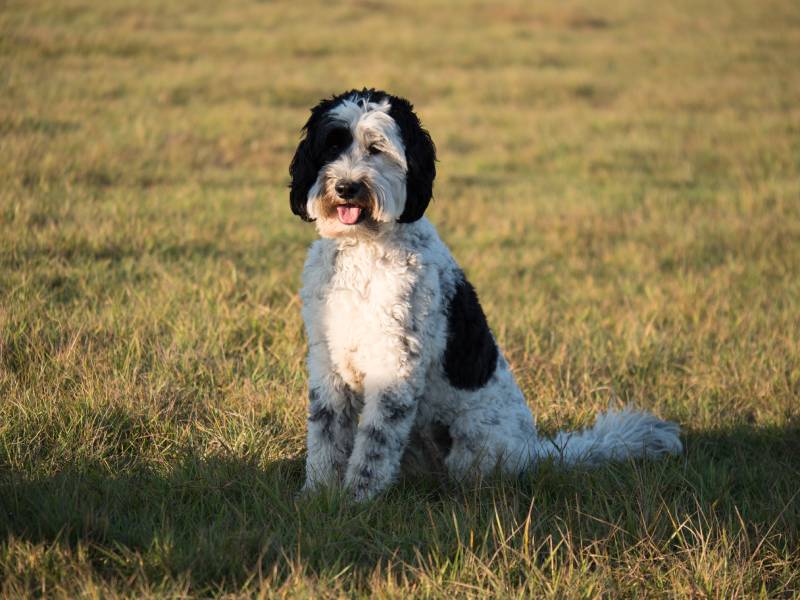
Temperament
If it’s a guard dog you’re looking for, the Labradoodle isn’t it, as this pup is friendly and welcoming to all. The breed is gentle, affectionate, loves their families, intelligent, and highly energetic. You’ll be doing tons of running and playing with a Labradoodle in the home!
And though they are mellow and gentle, these are still large dogs, so keep an eye on them when they are playing with smaller children. A Labradoodle might accidentally knock someone over in its exuberance. Overall, though, this breed is one of the most amazing family dogs due to its even temperament.
Training
Despite its naturally fabulous temperament, you’ll still need to be sure you begin training your pup from the moment you bring it home. Training and early socialization are vital to owning any dog breed, even the easygoing ones. Luckily, due to the intelligence they inherit from their Poodle parent, the Labradoodle will be quick to pick up new commands and tricks, making your job much simpler.
As with all canines, though, if you don’t have the time to properly train your dog or are having issues, reach out to a professional for help!
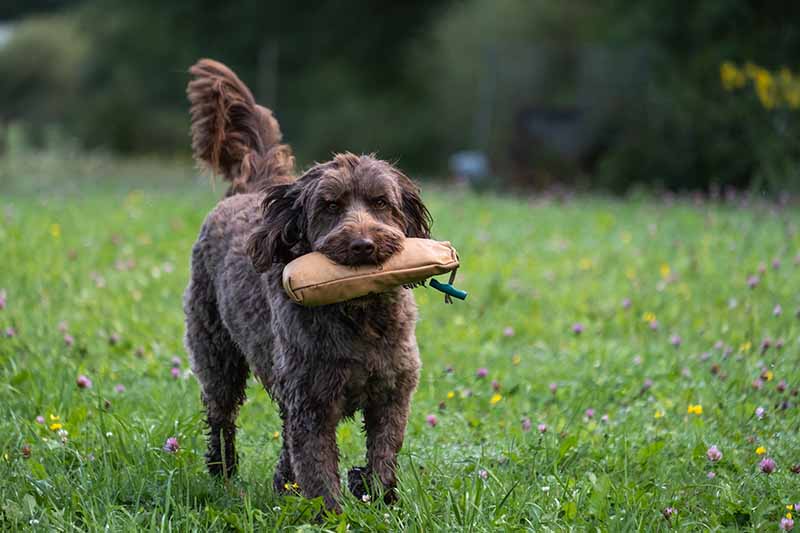
Health & Care
Like the Sheepadoodle, the Labradoodle breed is a relatively hardy one, but they do have the potential to inherit health issues from their parents, the Labrador Retriever and the Poodle.
- Ear infections
- Addison’s disease
- Elbow dysplasia
- Bloat
- Epilepsy
Suitable For:
Labradoodles make wonderful pets for almost anyone. They’re great for first-time dog owners because of their high trainability, and they are fabulous additions to family homes. However, keep in mind the high energy of these dogs; they require a lot of daily exercise to stay healthy and keep from being bored, so be sure you have the energy to match theirs!

Which Breed Is Right for You?
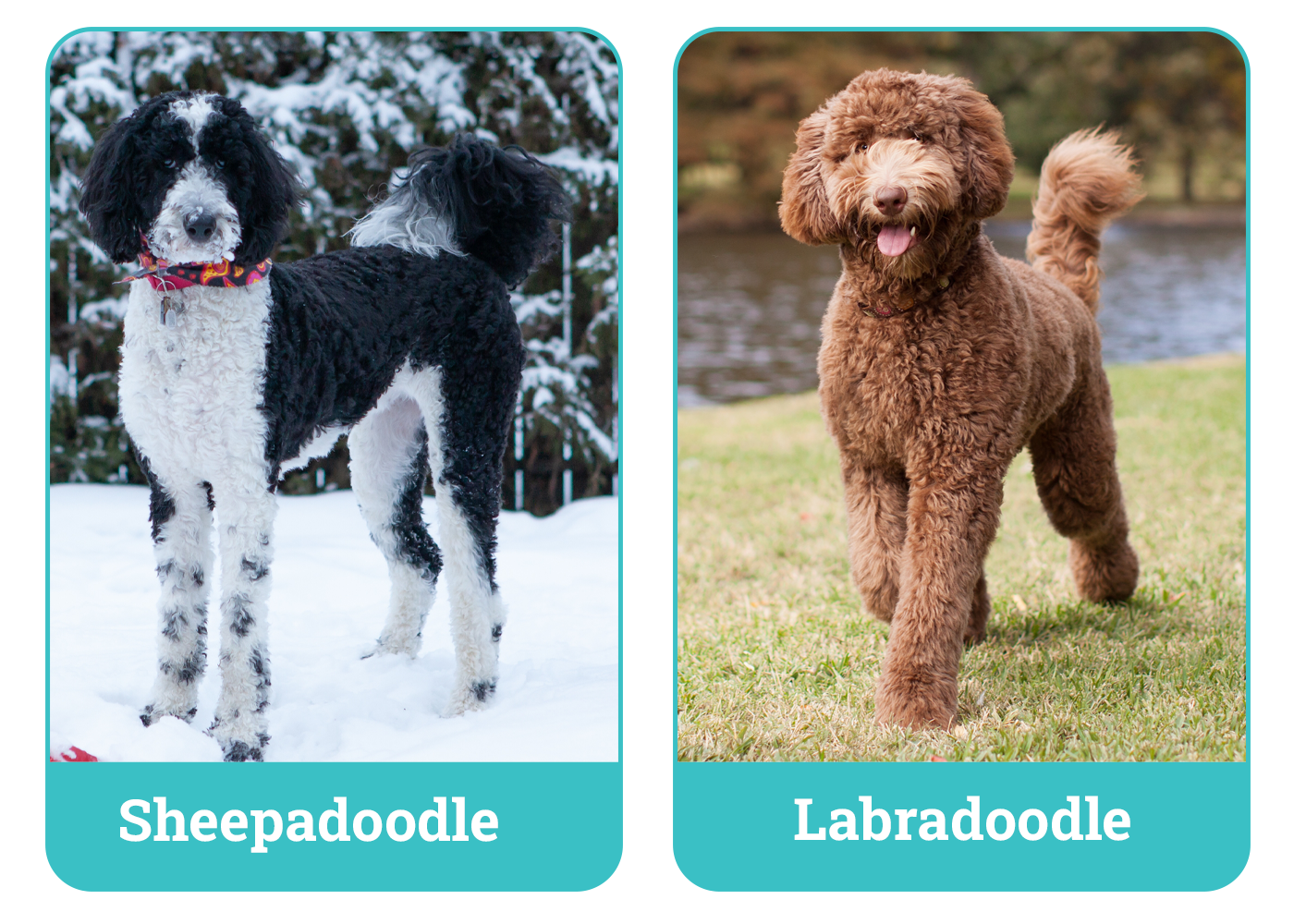
The Sheepadoodle and Labradoodle have a lot in common, so which dog is right for you depends on your preference and whether you have the space to house either of these breeds. Both dogs will make amazing pets for family homes, singles, first-time dog owners, and almost anyone who can match their energy.
And no matter which breed you decide to go with, you’ll be inviting a sweet, loving pup into your life, so enjoy!
Related Reads::
- F1 vs. F2 Goldendoodle: The Differences (With Pictures)
- Double Doodle vs. Goldendoodle: The Differences (With Pictures)
Featured Image Credit: (T) Lisa Mounteer, Shutterstock | (B) Justin Sienkiewicz, Shutterstock
